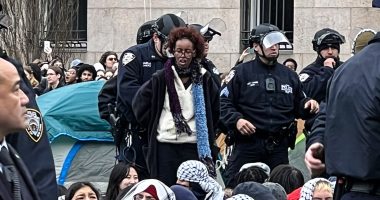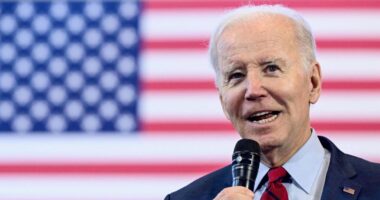A messianic religious movement known for conducting mass weddings and courting prominent American conservatives has found itself at the center of the speculation surrounding the assassination of former Japanese Prime Minister Shinzo Abe.
The Family Federation for World Peace and Unification, also known as the Unification Church, condemned Abe’s killing at a news conference Monday and sought to distance itself from media reports that the suspected gunman’s mother made a hefty donation to the religious group before she went bankrupt.
A suspect, identified as Tetsuya Yamagami, 41, confessed to the attack and told investigators he held a grudge against a group he said was connected with Abe, but the violence itself was not politically motivated, Japanese media reported, citing police sources. Abe, who had been Japan’s longest-serving prime minister until his resignation in 2020, was gunned down Friday during an outdoor campaign rally with what authorities believe was a homemade firearm.
The timing — two days before a parliamentary election — had led many to theorize on the gunman’s motive.
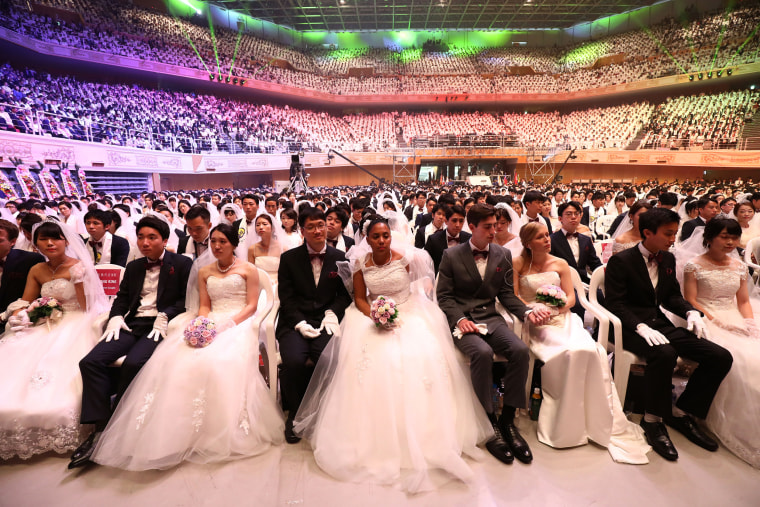
But the implied association with the Unification Church, whose history with Abe goes back more than half a century to his grandfather, is stirring up larger questions and concerns about the group’s practices and political ties.
Tomihiro Tanaka, the president of the church’s branch in Japan, said Yamagami’s mother is a church member who would attend functions about once a month, but they had no record of the church asking her for a large donation and declined to comment further because of the ongoing police investigation.
“We will fully cooperate with the police investigation if they request us to do so,” Tanaka told reporters.
He added that neither Yamagami nor Abe had been church members. Police have yet to publicly identify the group to which Yamagami’s mother belonged, and it’s unclear if she was also involved in other religious organizations.
Still, scholars of Japanese politics and religion say the Unification Church and groups like it may face a reckoning in the country among officials who want to examine how they function and their financial structures.
“There’s going to be a lot of conversations about deeper oversight into the kind of things that will lead to political violence, like the building of homemade guns, but also allegations of predatory practices,” said Sheila Smith, a Japanese foreign policy and politics expert at the Council on Foreign Relations, a nonpartisan think tank.
Levi McLaughlin, an associate professor of Asian religions at North Carolina State University, said there remains a stigma attached to organized religion in Japan, and some Japanese may already be leery about the Unification Church because it was founded in South Korea by a self-professed messiah, Sun Myung Moon, who died in 2012 at age 92.
“Such a group might be seen as a nefarious influence characterized as preying upon the weaknesses of those who are already struggling,” McLaughlin said. “But the truth is its adherents are also intelligent and have a sophisticated series of reasons for why they join this and feel like they must forge this type of community.”
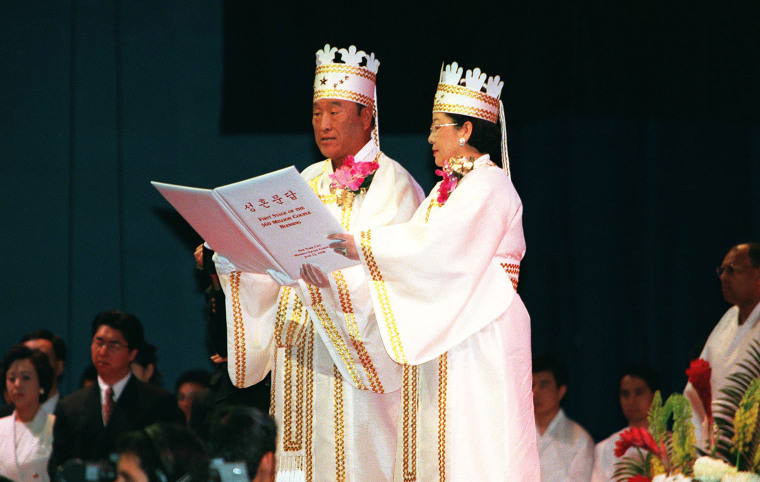
Abe’s late grandfather, Nobusuke Kishi, the Japanese prime minister from 1957 to 1960, had been friendly with Moon, whose church opened its branch in Japan in 1959. The exact number of followers in Japan is unclear, although the church claims about 600,000 members there and 10 million globally.
The Unification Church was built on anti-communism ideals and propped up conservative values, putting a focus on the creation of multicultural families over secular lifestyles that allowed for premarital sex, divorce and homosexuality. Moon officiated large-scale weddings, once marrying more than 2,000 couples at New York’s Madison Square Garden in 1982. Moon, who moved to the U.S. in 1972, became a player in Washington, D.C., where he supported Republican presidents like Richard Nixon and Ronald Reagan and founded his own newspaper, The Washington Times.
But Moon was not without his own controversy. Critics accused him of running the group as a cult and money-making operation generating millions of dollars annually. In 1982, he was convicted of tax evasion for which he served 13 months in federal prison. He and his followers claimed he was the victim of religious persecution. After his death, he faced accusations that he engaged in adultery.
There is also a reported schism that formed within the Unification Church following his death. Moon’s widow, Hak Ja Han, remains the church’s leader and is regarded as the movement’s “True Mother.” Two of their 13 children, sons Hyung Jin “Sean” Moon and Kook Jin “Justin” Moon, started the World Peace and Unification Sanctuary, also known as Rod of Iron Ministries, in Pennsylvania.
The offshoot church, which promotes gun ownership, gained attention in 2018, when news reports showed images of worshippers wearing crowns and carrying unloaded AR-15 rifles as couples renewed or exchanged wedding vows — just days after the school shooting in Parkland, Florida.
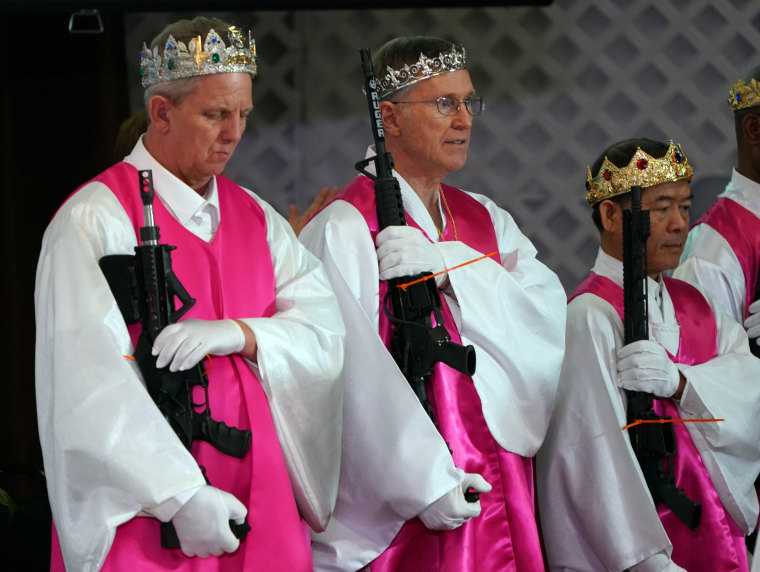
In Japan, conservative politicians like Abe have cultivated ties from groups like the Unification Church because of the influence they can hold, and it’s not uncommon for them to make appearances at their events.
In September, former President Donald Trump spoke at a virtual “Rally of Hope” hosted by the Universal Peace Federation, which Moon and his wife founded in 2005 to help promote their goal of “one family under God.” Abe, a conservative politician who sought to expand Japan’s military power, also addressed the forum, calling for “solidarity between countries sharing freedom and democracy” in the Pacific region, The Washington Times reported.
Japanese media, citing a source close to the investigation, reported Tuesday that Yamagami told police that he had seen the video message of Abe at the Universal Peace Federation event and that’s why he thought the former prime minister was connected to the church.
Local media also reported that investigators said Yamagami had test-fired his homemade weapon the day before the assassination by shooting at a Unification Church facility in Nara, the city where Abe was killed.
As investigators continue to probe the gunman’s motivations and the nation mourned Abe during his funeral Tuesday, there are concerns about a “spillover effect” from the killing.
In the aftermath, some online users sought to blame Korea for Abe’s death, said McLaughlin, the author of “Komeito: Politics and Religion in Japan.” The Consulate General of South Korea in the city of Fukuoka warned Koreans living in Japan that they could be the target of hate crimes.
“This is going to rile up anti-Korean sentiment because it’s a Korean-based church,” McLaughlin said. “The conspiracy theories are already being talked about similar to QAnon — the killer is Korean and it’s a conspiracy by Korea.”
McLaughlin added that marginalized people in Japan like women, immigrants and the economically disenfranchised who belong to religious groups like the Unification Church may “bear the brunt of any bigotry.”
“Blowback will fall onto the shoulders of people like the suspect’s mother,” he said, adding, “The irony is the murder of Japan’s most powerful person will have a direct impact on Japan’s least powerful people.”
A wider discussion about class and economic insecurity that permeated the recent campaign cycle in Japan will also continue, political experts say, given the suspect’s background. Yamagami had been unemployed since May after leaving his job at a factory, where co-workers described him as “mild-mannered” and said he would eat lunch alone in his car, the Kyodo News reported. Japanese police said they found several homemade weapons during a raid of his home following Abe’s killing.
While it’s unclear the extent of his online activities, that Yamagami appeared isolated and concerned about his family’s financial ruin “is emblematic of a lot of ways that the Japanese have been grappling with these issues of self-isolation and the growing divide between the haves and have nots,” Smith said.
She believes further scrutiny will be placed onto groups like the Unification Church. “Abe’s death set off more than anyone could have imagined,” Smith said.
Source: | This article originally belongs to Nbcnews.com



